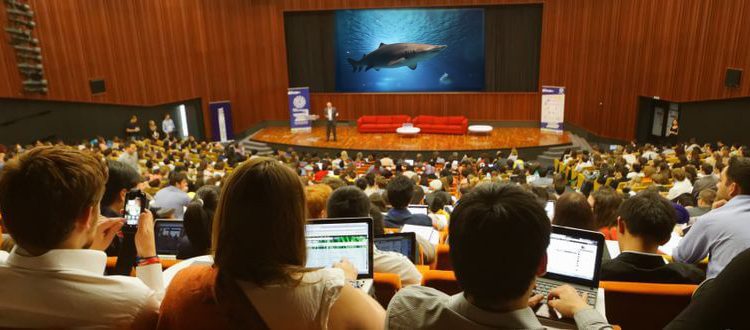Tips on How to Identify and Avoid Predatory Conferences

Any academic having an email address must have definitely at some point received countless invitations to attend or present at various conferences. Although such conferences give the researchers exposure and recognition, they are not always organized by well-established organizations. Mostly, such invitations are for predatory conferences.
What are Predatory Conferences?
Predatory conferences are usually small and for-profit. In addition, they exploit an academic’s need for recognition or an audience. Moreover, recent data shows that predatory conferences now outnumber so-called legitimate conferences. Contrary to what most academics believe, not all predatory conferences are small, poorly-organized, and organized by fly-by-night organizations. In order to ensure that they make profits, a decent organization is usually set-up. One telltale sign of a predatory conference is that low-quality research is often presented alongside research by famous academics. However, there are various other signs as well.
How do Predatory Conferences Work?
These conferences often obtain money from researchers and may consist of hundreds of conferences organized at once. BIT Life Sciences is a known organizer of predatory conferences and sends emails to academics from various fields all at once. These companies have made huge profits out of scientific budgets and scientists’ blind ambitions to present their papers. Such conferences aim to earn money from those willing to pay for conference fees and the costs associated with open access publishing. Predatory conferences are nothing more than moderately well-organized events that promise researchers recognition after they pay a hefty fee.
Identifying Predatory Conferences
There are a number of ways to identify predatory conferences. Identifying these conferences is important for you as a researcher and for others in the academic publishing field.
- Is the conference included in the list of known predatory conferences?
- However, do not assume a conference as not being predatory if it does not show up in the list.
- Did professional societies and other well-established organizations organize this conference? Be wary of organizations with overly generic names and avoid extremely large conferences that combine various fields into one conference.
- Are there various options to contact the conference organizers? Most legitimate organizations do not use free email accounts and have websites with “.edu” addresses.
- How long does it take for the acceptance of the paper? Most predatory conferences promise a quick turnaround time for papers to lure in unsuspecting academics.
- Does the conference have awards for researchers and papers? Be wary of conferences that promise a large number of rewards.
- Do the conference organizers promise paper publication? Most legitimate conferences do not guarantee publication.
- Is there a geographic variety in terms of the editorial board? If all editors came from the same place, then this could be a sign of a predatory conference.
- Do the editors have any academic information presented about themselves?
- Is there evidence to suggest that the review members or editors are not educationally qualified to conduct the peer review process?
Initiatives Against Predatory Conferences
While predatory conferences exist in high numbers, there are initiatives that guide researchers on avoiding these conferences. Think. Check. Attend is an organization that helps researchers and academics decide whether the conference is legitimate or not. Think. Check. Attend provides guidelines for researchers to help them identify predatory conferences.
Other initiatives are simply lists of predatory conferences. The most well-known list of predatory conferences was published by Jeffrey Beall. Beall is a librarian and a researcher at the University of Colorado. Beall, a leading expert on identifying predatory conferences has spent countless hours and much effort into creating a detailed list of these conferences. These conferences are especially good at luring in early-career researchers.
Impact on the Academic Community
The impact of predatory conferences on the academic community is tremendous. Aside from the lies, the biggest problem with conferences and journals that are bogus is that there is a complete lack of oversight and poor quality control. Most predatory organizations also do not conduct peer reviews. What’s even worse is that they do not reject sub-standard studies. By filling the academe with bogus journals, these predatory conferences make finding legitimate research harder.
Predatory conferences also waste researchers’ time and money by conducting conferences in remote parts of the world. Furthermore, these conferences leech from junior researchers, especially those from developing countries. Not only do such conferences take advantage of young researchers, they also make it harder to discern good research from bad ones.
Therefore, researchers should avoid such predatory conferences at all cost. However, many researchers fall prey to their taglines and the attractive packages they offer. In some cases, even seasoned researchers have fallen prey to such conferences.
So, have you been victimized by a predatory conference? Have you attended a conference that turned out being predatory? Share your thoughts with us in the comments below!









European Society of Person-Centred Healthcare. They invite you as a plenary speaker and then, when you’ve accepted and the programme is produced, you’re hit with large registration fees, which were not mentioned when you were invited. Some speakers report they were invited to give two talks on two days to find that meant they had to pay two days’ registration fees.
Their annual conference has an award ceremony and reception (which costs extra to attend (a lot)). Awards are given for seemingly anything vaguely linked to person-centred healthcare and are quite obviously used as a way of marketing the conference: tell people they’ve won an award and they’re more likely to attend your conference.
Iris Scientific Group and Pride Conferences are not listed, but meet the criteria you describe for predatory conferences. They charge a large registration fee and do not respond to one’s attempts to contact them.
Yes, I was victimized by this group called GSRD – Global Society for Research and Development.
I registered for a conference in Budapest, and a week before the conference, they sent an email, saying it was cancelled due to low turnout of participants. They said that they will me mailing to us the conference proceedings because we have paid the registration fee. But I requested that they refund me the full amount. No reply. I have spent for the airfare, accommodations, visa, insurance, etc. and cancellation fees amount to almost US$ 800!